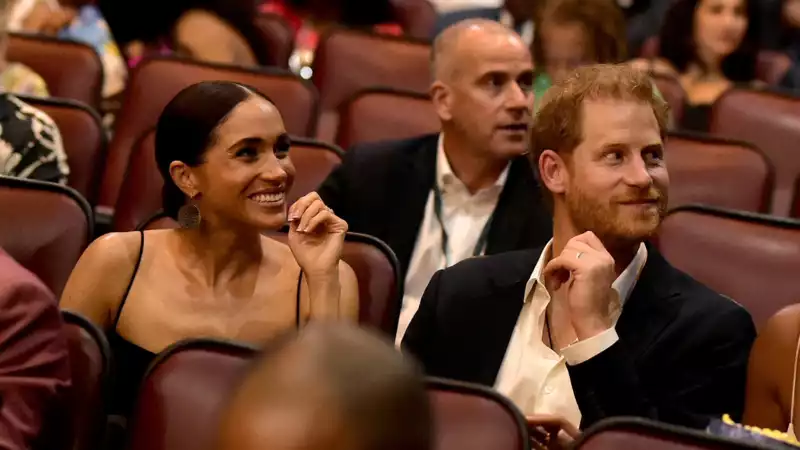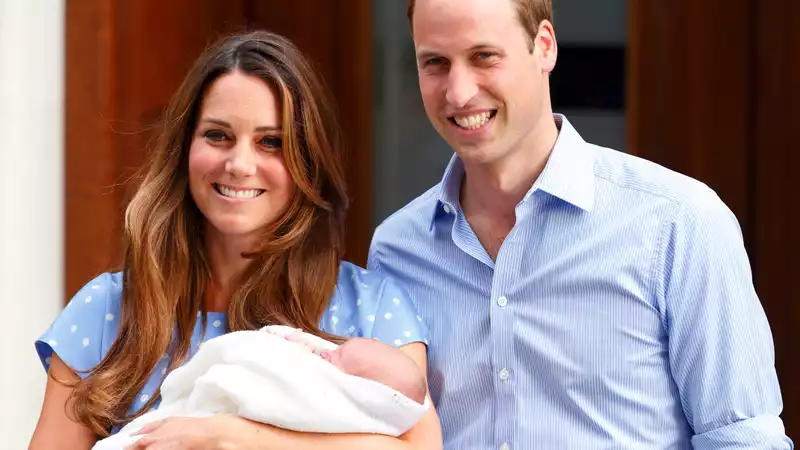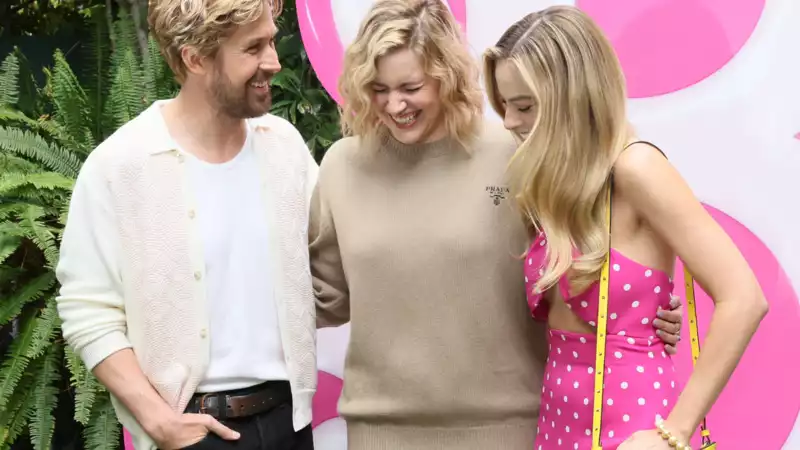
Prince Harry and Meghan Markle at the premiere of "Bob Marley: One Love" in Jamaica.
Prince Harry and Meghan Markle made a surprise red carpet appearance.The Duke and Duchess of Sussex were spotted at the premiere of the music biopic "...
Read More
Naming a baby is difficult enough when the whole world has no opinion about it, but naming a royal baby takes the difficulty up a notch. Like many parts of royal life, there are rituals surrounding the naming of a royal baby.
First are the very unique features of royal baby names. For example, the trio we like to call the "Cambridge Kids" - Prince George, Princess Charlotte, and Prince Louis - do not have strictly ironclad last names. Their parents are the Duke and Duchess of Cambridge, so just as Prince William and Prince Harry once called themselves William Wales and Harry Wales (their father, Prince Charles, is Prince of Wales), at school they are George Cambridge, Charlotte Cambridge, and Louis Cambridge as their names. In addition, the royal family also takes the surname Mountbatten-Windsor, adding further confusion as to what the royal baby's last name is. Mountbatten-Windsor is "the name that members of the royal family use when they need a last name," The Independent reports. For female royals who marry outside the family, such as Princess Eugenie (who married Jack Brooksbank in 2018) and Princess Beatrice (who married Edoardo Mapelli Mozzi in 2020), their children usually take their husband's last name (i.e., born in 2021 August Brooksbank and Siena Mapeli Mozzi).
Next, royal babies, especially those at the top of the line of succession, usually have at least three names. The Queen's full name is Elizabeth Alexandra Mary, Charles' full name is Charles Philip Arthur George, William's full name is William Arthur Philip Louis, and Harry's full name is Henry Charles Albert David. This trend continues into the next generation with George Alexander Louis, Charlotte Elizabeth Diana, and Louis Arthur Charles. Babies born into royal families are usually given multiple names at birth, many of which honor members of the family," the Independent reported.
The higher up the order of succession, the names are fairly traditional, but "the lower down the order of succession, the more unique names are allowed," the Independent reported. The lower you go in the order of succession, the more likely you are to have a more unique or non-traditional name," says Caroline Harris, author of Raising Royalty: 1,000 Years of Royal Parenting. Eugenie, for example. As the 10th, she will never be monarch, and her son August, the 11th, will never be monarch. Therefore, unique names are allowed.
The "fourth rule" The Queen does not have to approve, but the parents will be informed in advance what the royal baby's name will be. Due to royal protocol, members of the royal family usually share the child's name with Queen Elizabeth II before announcing it," The Independent reported. According to royal commentator Kate Williams, this does not mean that the monarch must approve the name; it is more of an "informal conversation." But if the queen objects, the name will likely be changed. Of course, they respect the queen, so if the queen says, "I really don't like that name," they will definitely consider it, Williams says.
Finally, if a title is given to the royal baby's name, that title is given by Her Majesty the Queen. The magazine reports, "The Queen does not decide the baby's name, nor does it require her approval, but if she does, it is up to the monarch to give the child a title." Currently, grandchildren of the monarch have titles (with the exception of Princess Anne's children, Peter Phillips and Zara Phillips Tyndall, at her request), but when it comes to the monarch's great-grandchildren, only the children of the heir to the throne (i.e. William) receive titles.
And we mere mortals found it difficult to name our babies!

Prince Harry and Meghan Markle made a surprise red carpet appearance.The Duke and Duchess of Sussex were spotted at the premiere of the music biopic "...
Read More
Taylor Swift is once again proving just how generous she is.At Sunday's Chiefs game at Highmark Stadium in Orchard Park, NY, the superstar made a grea...
Read More
Ken is not having a good day.Ryan Gosling is clearly pleased to have been nominated for Best Supporting Actor at the 2024 Academy Awards, but his achi...
Read More
Some A-listers like the wide open back of a black dress, but in Kendall Jenner's case, she likes the wide open front of a black dress (well, back, too...
Read More
Comments